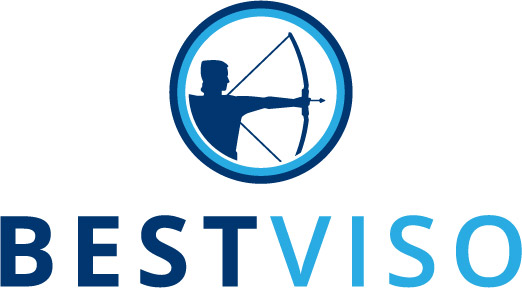Unbiased market research consulting – a growth driver
Over 75% of American company presidents, CEOs, and COOs agree on at least one point: customer insights are critical to accelerating business growth. This becomes especially evident, as a 2016 BCG study found when the customer insights function (located in operational market research) assumes the status of a cross-departmental strategic advisor.
However, the reality is often different. As much as 80% of customer insights functions still haven’t reached the strategic level within the company, but rather perform a tactical support function. As a consequence, the consulting function as a driving force – as a source of competitive advantage for strategic implementation – is rarely experienced.
But precisely what kind of consulting do clients and stakeholders expect? To whom, exactly, do they direct their expectations? And which levels of consulting are effective and efficient for decision-makers?
Corporate culture determines the importance of market research consulting
Answers to these questions can be found only by examining the company’s specific threshold situation. The role played by market research processes in overall corporate processes will depend, firstly, on the extent to which the company is customer-oriented. Conversely, the company’s degree of digitization also has significance. The following three examples demonstrate how these interlocking processes appear in practice:
Three examples
1. Strategy as a management decision
In our consulting practice, we still frequently encounter companies that gather little or no information about customers and the market. Company managers will then render decisions based merely upon entrepreneurial intuition. One practice involves collecting information from direct sales discussions or competitive observations. Yet in many instances, these managers grasp that in order to sustainably operate in the market, they actually need fundamental information about customer behavior and perceptions.
Some companies don’t employ specialized market research managers or corresponding consultants. Instead, employees lacking the requisite educational background, expertise, or sufficient experience will be forced to address the issue. This mismatch of skill sets leads to excessive demands or, in the worst-case scenario, to a poor allocation of resources or erroneous conclusions derived from invalid insights.
2. Market research in the innovation process
On the other side of the scale, we find companies that possess a highly structured approach to their market research organization. These companies gain their insights in the course of the innovation processes. If they implement results in a targeted manner, then the company will gain competitive advantages. In extreme cases, however, these internal processes grow overly complex and cumbersome. When this happens, approval processes and the implementation of studies can take an unduly long time.
Also, decision-makers sometimes lose track of the results because there are simply too many studies and too much information. Critical findings may get lost in different company departments, which then squander an opportunity to develop a common language and a targeted strategy across functions. At other times, studies on the same issue are duplicated, reducing value-added resources.
3. Real-time digital feedback
Still other companies may be quite advanced in their agile processes through their digital sales channels – enjoying a high degree of automation while rapidly collecting customer responses and requests at all stages of brand or product communication. Forecasts are made with artificial intelligence (AI). In addition, the companies have established development departments that investigate user experiences and feedback in rapid cycles. This practice, though, sometimes creates research silos. IT-driven user experience research and Big Data analysts contrast markedly with corporate market research.
At this juncture, a company will call upon corporate market researchers who are often dedicated to overarching brand issues, because despite the increased demand for shorter feedback loops and for automated analyses and forecasts, it’s still crucial to ensure the high quality of empirical research. Ideally, researchers should explicate the strengths and limitations of the two approaches so that they can be used in a target-oriented manner.
What makes for good consulting
The three prototypical examples each require specific, unbiased market research consulting. Regardless of these specific company situations, certain criteria for quality consulting are generally applicable:
A good consultancy is:
- comprehensive,
- independent,
- unbiased,
- professional, i.e., possessed of the necessary expertise and personal and socio-communicative skills, and
- goal-oriented.
How well a consultancy can meet these criteria will depend on the function-related role of the persons involved in the market research process. Those involved in the market research process include:
- Company market researchers or externally retained market research consultants who act like company market researchers and bring experience from the internal company context
- Marketing or R&D managers who are responsible for managing market research, but often lack the in-depth expertise of an experienced in-house market researcher
- External market research institutes
Freedom from bias as the core of unbiased market research consulting
The more independently and free of bias process participants advise, the less they are bound by instructions or bear responsibility for the implementation of measures. Freedom for bias, however, doesn’t imply that operational market researchers ought to remain aloof from strategic issues. Quite the contrary: because they are bound by instructions, it is all the more important that they keep their lack of biases uppermost in mind.
Studies are periodically commissioned for which particular results are expected for political reasons, leading to a role conflict for in-house market researchers. By contrast, outside market research consultants, thanks to their independence from the company, find it easier to remain free of bias. Well-founded recommendations always account for the company’s objectives and specific framework conditions.
Marketing managers run the risk of interpreting results from their own perspective, which is emotionally associated with their product, while largely ignoring critical results. In many instances, we have also observed that clients will purchase from market researchers specific tools and methods that do not adequately answer the strategic questions. Yet those responsible may do so unawares because they trust in the quality (“But this is a renowned institute!”). This asymmetry reduces the added value of investments made.
Market research institutes reach their limits
Despite their expertise and methodological competence, market research institutes also bump up against natural limits in their independence and lack of bias. After all, bias-free market research consulting works only if – among all offers available on the market – the most suitable, most target-oriented, and most value-adding approach is selected. But no market research institute will recommend a competitor that enjoys greater depths of expertise or more specialized experience in certain areas. By all means, a solid, reputable researcher will say “No” to certain method and survey requests coming from the customer, if complying with such should fundamentally compromise quality. But time and again, reality has shown that in studies, methodological compromises are made in order to avoid losing the client or to keep within predefined budgets.
Weighing up the advantages of market research institutes in a comprehensive and targeted manner
Especially in the areas of internal knowledge management and data consolidation, independence of analyses and recommendations is essential. In some cases, we have observed, the research institute’s portfolio has significantly influenced the recommendation, leading to its failure to answer the research questions in a target-oriented – and thus value-adding – manner. For this reason, it is imperative to place an unbiased interface function between top managers and information service providers. Bundling the methodological and industry competencies of the various market research institutes becomes possible only by engaging in-house market researchers or independent market research consultants. Ideally, different data sources and research results can be combined into strategic action bundles and then used for long-term planning in a value-adding manner.
Unbiased market research consulting, from method to strategy
Market research consulting rests on a four-level edifice, from method to strategy.
Methodology and objective
- Consultation on methodology, survey type and evaluation, and quality assurance:
We strongly recommend adhering to the quality guidelines of market and opinion research. When all is said and done, the scientific rules of empirical market and social research and test diagnostics remain decisive. Beyond that are empirical values derived from years of market research practice, the contents of which cannot be gleaned from textbooks. Such advice is essential. Quality is the basis – the “must-have.” It is the only way to create value from the investment.
- Basic understanding of the business model, entrepreneurial goals and challenges in the context of the market, and derived research objectives and recommendations:
These are the sine qua non for performing data collection in a targeted, effective manner that will create a secure basis for decision-making. Both these points equally apply to operational market researchers, consultants, and market research institutes. However, research institutes don’t always successfully obtain information requisite for better embedding their study approach from the client. Often, the groundwork must first be done in order to clarify the study objective.
Implementation and strategy
The next levels of consulting at which either in-house or outside operational market researchers perform advisory functions for strategic implementation extend well far beyond pure project management.
- The view of operational market research beyond the horizon of market research and marketing:
Insights are carried over to other specialized departments, 0and information is networked. Operational market researchers or market research consultants provide significant support in the cross-departmental implementation of insights, and in turn, these insights are integral to strategy.
- Consulting operational market researchers ensures strategic priorities:
The highest level creates a knowledge base that facilitates an organization grounded in learning. Across every area and every level, insights are a key driver of the strategic and business agenda.
Conclusion
Quality consulting for the purpose of obtaining qualified information about customers and markets functions best with an independent and unbiased point of view that takes the company’s overall systemic and strategic context fully into account Such consulting is the only avenue to assess and classify data sources emanating from different research providers in terms of their quality and strategic significance. Unbiased consulting defines and then closes knowledge gaps, ensuring that all departments enjoy the same level of knowledge of the given information. In turn, this process ensures that everyone is speaking the same language and that strategic decisions are being rendered based upon business-relevant insights. The bottom line: unbiased market research consulting leads to competitive advantages and increased sales.
Are you interested in unbiased market research consulting for a current project? Please contact us! Find out more about our offer for unbiased market research consulting here.

